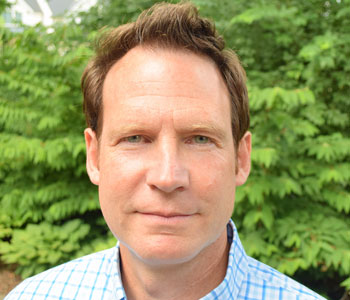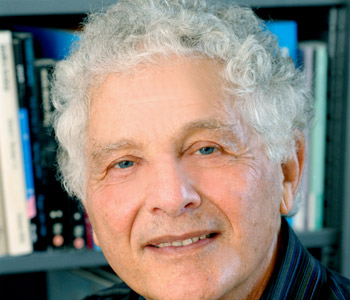Peter Y. Paik
From Utopia to Apocalypse: Science Fiction and the Politics of Catastrophe
University of Minnesota Press
232 pages, 8 ½ x 5 ½ inches
ISBN 978 0816650798
ISBN 978 0816650781
From Utopia to Apocalypse is a study of political upheaval and revolutionary change, as they are portrayed in works of speculative and science fiction. It is my contention that science fiction and speculative narratives, by virtue of their fantastic character, enable us to imagine in vivid terms the experience of sweeping political change and social transformation. The narratives I discuss in this book—the superhero comics of Alan Moore, the fiction of Kurt Vonnegut, the cinema of Jang Joon-Hwan, and the manga of Hayao Miyazaki—depict, with unblinking candor and rigorous equanimity, the violence committed in the name of founding a new order or destroying an unjust one. As such, they compel us to come to grips with the unrelenting compulsions and uncontrollable forces that are unleashed in the process whereby one kind of order gives way to another.
For example, in Miracleman, a revisionist superhero comic by Alan Moore, the superhuman beings tire of serving an unsatisfactory status quo and decide to take over the globe. They force the leaders of the world into retirement, eliminate poverty, destroy all nuclear weapons, and heal the environment from the ravages of industrial pollution. But these acts of humanitarian compassion soon reveal a darker side: the superheroes essentially become dictators who declare themselves to be gods, while any dissent against their rule becomes reduced to inconsequential spectacle.
Though it has little in common with classical tragedy, Miracleman contains an indelibly tragic dimension, for it lays out in vivid terms the harsh price entailed for achieving what most would consider a glorious outcome. The other narratives I look at contain similarly cruel dilemmas and wrenching twists: mass murders that trigger world peace and thus remain unpunished, the destruction of annihilating weapons that has the consequence of eliminating the technologies for creating abundance and guaranteeing human survival in an increasingly toxic planet, a program to rescue humans from their violence that requires the horrific suffering of a small number of innocent individuals. The protagonists in these works find themselves trapped in tragic conflicts, but these predicaments, which often exact a terrible price, turn out to be the necessary precondition for passing into a wholly new or entirely different state of affairs.

The contemporary critique of capitalist society depends on the health of the economic and political status quo: an oppressive authority that is “strong” is far easier to condemn than one that is weak and caught in the process of dissolution.
I had not undertaken any scholarly studies of science fiction or popular culture prior to writing this book—my graduate work had focused on the aesthetics of literary modernism. But the attacks of September 11 led me to embark on a project that would enable me to reflect on the uses and consequences of violence in political life. Although my book is not a study of how the terrorist attacks have influenced the production of certain films or the writing of certain literary texts, nevertheless, at its heart, this book is an examination of the relentless compulsions that underlie such fateful and destructive endeavors as imperial expansion, the control of access to scarce resources, and the anxious defense of an unsustainable status quo.
The critical approach I take to studying science fiction and political theory stems from my dissatisfaction with the intellectual methods currently predominant in contemporary theory. Efforts to theorize political life in literary and cultural studies generally take the form of denouncing the policies and critiquing the dominant values of an oppressive state. Rarely do they gravitate toward a substantive reflection upon what it means to govern a modern state, nor do they face up to the hardships that any actual shift toward a leftist politics would entail. In either case, what is excluded is the thought of imagining and wrestling with the dilemmas faced by those who are responsible for the fate of a collective.
To avoid the pitfalls posed by the disabling position of permanent critique, in which political responsibility becomes smothered in a discourse of moral indignation and the act of interpreting literary and other texts becomes a predetermined exercise in advocating a radical cultural politics, I chose to undertake my readings of science fiction texts in a theoretical and ethical field demarcated by two extreme, ostensibly contrary positions—the first being the political realism associated with Niccolo Machiavelli and to a lesser extent, Thomas Hobbes, and the second being a politics and ethics of saintliness exemplified by the French mystic and philosopher Simone Weil.
In the former position one finds the hard-headed and ruthless pursuit of worthy and selfless objectives, in which morality is subordinated not to the ambitions of the unscrupulous but rather to the task of achieving independence and security in a world wracked by the ceaseless struggle for power. Weil, on the other hand, enunciates the uncompromising stance that human action must be guided by a supernatural good, yet in her writings one finds a profound meditation on the crushing power of human cruelty and the vulnerability of all good things to injustice. The good for Weil must be conceived against the harsh realities of massacres and the spiritual destruction of those reduced to slavery, or else it remains a tawdry piece of fiction.
While Machiavelli’s political realism and Weil’s ethics of saintliness are directed towards radically different ends—patriotism for the former, the well-being of the soul for the latter—both share a fearlessness with which they seek to attain an elusive lucidity regarding human actions. Contemporary liberal thought is apt to dismiss such illumination as excessively severe. But the unyielding rigor with which both thinkers examine social reality underscores the fact that reality is not a given but can only be grasped by those prepared to face up to harsh and arduous truths. Thus, the tension between realpolitik and saintliness enables a detailed reflection upon an unsettling series of themes: the compassionate aspects of tyranny, the unconditional dedication to a loved one that results in total destruction, the choice between empathy and survival, and the sublime freedom that arises from terrible ordeals.
Rather than point out how a certain text fulfills the principles of a certain ideology, my readings emphasize how ideological doctrines are unsettled and their constituent elements torn apart by the narratives that are the object of my study. The contingent character of our political choices comes to the fore when we can imagine those values we take as existing together breaking apart and recombining into new and unexpected ideological formations.
Is mass violence justified if it brings about a better world? This question has been raised frequently in relation to communism, as crimes of Stalin and Mao exposed the murderous core of this utopian ideology. But with the end of the Cold War, a rather startling reversal took place: utopianism migrated from the revolutionary Left to the neo-conservative Right.
Indeed, the justifications for the invasion and occupation of Iraq convey the impression that much of the rhetoric of revolutionary socialism is being straightforwardly deployed on behalf of a radical program to extend democracy and free markets throughout the globe. The endemic strife that has overtaken Iraq compels us to question what it means to be regarded as a potential beneficiary of utopian violence—to question the experience of a person who is forced to accept the gift of freedom and all the horrors it has thus far entailed: terrorist bombings, ethnic cleansing, and a brutal insurgency that may trigger a civil war.
In the South Korean film Save the Green Planet, an erratic and violent young man kidnaps the wealthy and famous CEO of a chemical company, who he believes is an alien from the Andromeda galaxy leading a mission to destroy the earth. The protagonist, named Lee Byung-Gu, is unhinged by a lifetime of devastating suffering and has compelling reasons for carrying out a brutal vendetta against the industrialist. He was once an employee of the company run by the supposed alien, and his girlfriend was beaten to death during the break-up of a workers’ strike. His beloved mother, who also worked for the same company, lies in a deep coma from chemical poisoning. The CEO is a brusque and venal boor named Kang Man-Shik, who has recently won a suspicious, very public acquittal from charges of stock fraud. Aided by his girlfriend, a trapeze artist named Sooni, Byung-Gu overpowers an inebriated Kang returning home from a drunken night out.
What ensues is a series of horrific tortures, inflicted by Byung-Gu on Kang, to force him to reveal his identity as an alien agent and to set up a meeting with the alien prince. Kang, after a failed escape attempt, finally admits that he is an alien, but that his mission is not to destroy humanity but to save it from its most dangerous impulses, which now threaten the entire planet with annihilation. But the only way to save humanity is to single out a few individuals for experiments that test their capacity to endure suffering. Byung-Gu’s mother was singled out as an ideal test subject because, as the alien executive explains, “physical and mental suffering stresses organisms, forcing them to adapt and develop more quickly.” Indeed, Kang reveals that Byung-Gu and his mother were deliberately subjected to agonizing torment and misery in order to bring the experiments to more advanced stages.
Stunned by the obscene essence of the injunction underlying Kang’s speech—“Forgive me for the suffering and death of your mother, and you and your kind will be rewarded with peace and plenty!”—Byung-Gu reacts to Kang’s words by shooting out a mirror reflecting the face of his prisoner, and then opens fire against his own desk. Although one may account for his acting-out as a kind of admission of failure, since the aliens are revealed to be far less one-sidedly malevolent as Byung-Gu believes, this scene can also be understood as a demonstration of his resistance to the persuasive force of Kang’s argument for the salvational correction of the human species.

The justifications for the invasion and occupation of Iraq convey the impression that much of the rhetoric of revolutionary socialism is being straightforwardly deployed on behalf of a radical program to extend democracy and free markets throughout the globe.
What is the value of studying hypothetical transformations and imaginary upheavals overtaking fictitious individuals and societies? The speculative context enables the mechanisms that measure and sanction political violence to become properly visible.
The interpretation of serious literary works is more liable to arouse the reader’s moralistic impulses, whereby political violence is likely to be grasped as inexplicable acts of inhuman evil. But when one encounters fictional atrocities, when the victims belong to imaginary societies or to alternate realities, the perspective of the perpetrator, as well as that of the beneficiaries of his or her violence, assume an uncomfortably human proximity to the standpoint of the reader. This is not to relativize actual atrocities or to excuse inhuman acts, but rather to seek a deeper understanding of the persistence of violence in human history, especially in an age that distinguishes itself from the past by its unequivocal condemnation of cruelty and by its embrace of humanitarian values.
Such understanding can only come about by engaging in a speculative activity that has been condemned as imperialist and rendered taboo under the ascendancy of post-structuralist deconstruction: the work of imaginatively inhabiting a certain perspective and seeing the world according to its terms.
The ability to inhabit another perspective is crucial to grasping the mechanisms of political change, for what is being transformed is a specific outlook. The science fiction narratives I study are especially productive of this kind of reflection, as they show how an idea or action plays out within a concrete temporal sequence. We are taken from one distinct point to another, as well as shown the consequences of the action that unfold. As such, these texts evoke the experience of unwilled change that ensures the passing of one epoch into something new and different.
The pressure of tragic necessity is felt in the dangers that confront us in the present: the scarcity of vital resources, catastrophic climate change, and the inertia that afflicts our political and economic systems. The contemporary critique of capitalist society by contrast depends on the health of the economic and political status quo: an oppressive authority that is “strong” is far easier to condemn than one that is weak and caught in the process of dissolution. By contrast, tragedy, as the study of making decisions and suffering consequences, enables us to take the measure of what is intractable and what is transformative.




We don't put paywalls. We don't distract you with ads. We don't sell your data.
Please help to keep this running!